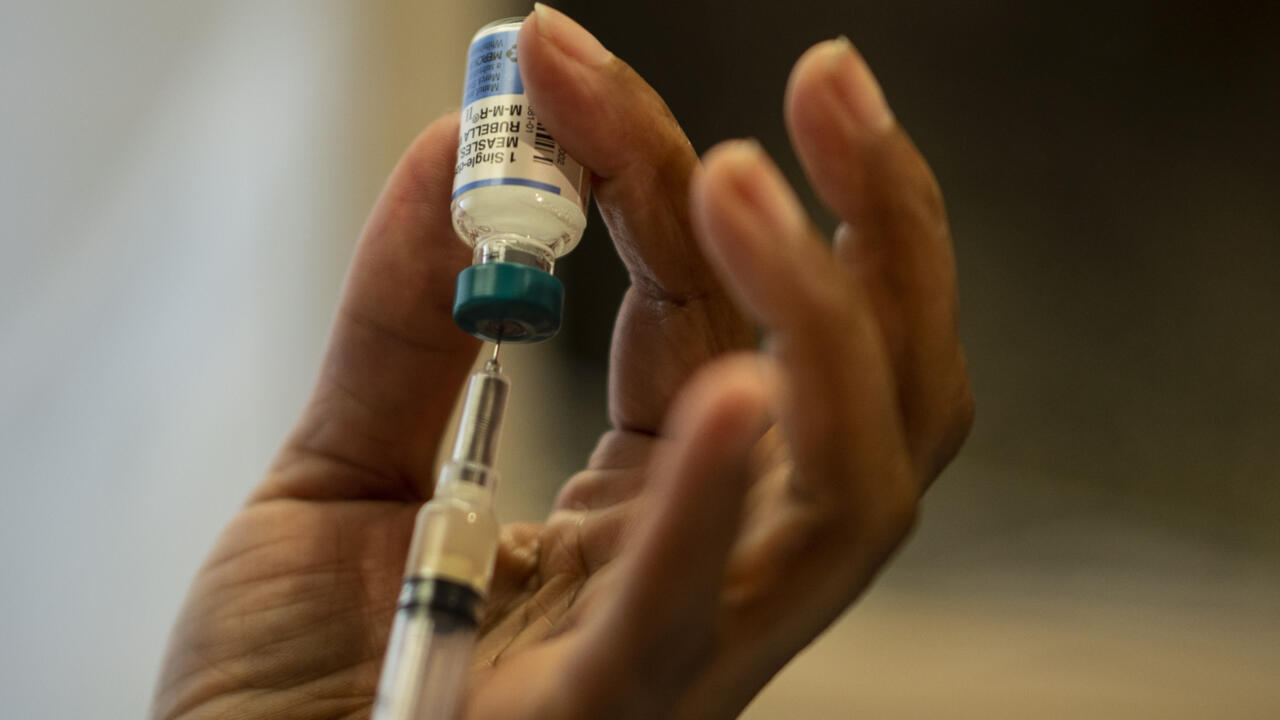Measles vaccination rates for young children in the United States may be significantly lower than publicly reported, raising concerns about the country’s ability to maintain its “elimination status” for the highly contagious disease. Experts warn that a decline in immunization among the most vulnerable group—young children—poses a serious public health risk. Computational epidemiologist Benjamin Rader from Boston Children’s Hospital and Harvard Medical School has highlighted this alarming trend in a recent study.
As of this year, over 420 measles cases have been reported, surpassing last year’s total. The outbreak is primarily centered in West Texas, but cases linked to international travel have emerged in other states as well. The majority of infections have been found in unvaccinated individuals or those with unknown vaccination status. Given that measles is one of the most contagious viruses, under-vaccinated areas are at risk of sustaining and spreading the disease, potentially leading to endemic transmission.
MMR Vaccination Rates Lag Behind Herd Immunity Threshold, Raising Public Health Concerns
The CDC recommends two doses of the MMR vaccine for effective protection, estimating that 92.7% of kindergarteners have received both doses. However, this figure is below the 95% threshold needed for herd immunity. Additionally, Rader argues that the actual MMR vaccination rate for younger children may be lower than reported, as CDC data is primarily drawn from children already in kindergarten. His study found that only 71.8% of children under five had received at least one dose, suggesting that national vaccination estimates may be overly optimistic.

The COVID-19 pandemic disrupted healthcare access and fueled vaccine hesitancy, which extended beyond COVID vaccines to routine immunizations like MMR. Rader’s study showed that children were 20% more likely to be vaccinated against measles if their parents were vaccinated for COVID-19. Public health officials in Texas, where vaccination opt-outs are increasing, worry that more children will remain unvaccinated unless school enrollment requirements enforce immunization compliance.
Rising Measles Threat as Declining Vaccination Rates Increase Risk of Endemic Return
Measles was declared eliminated in the U.S. in 2000, meaning no sustained transmission has lasted more than 12 months. However, in 2019, this status was nearly lost. Experts fear that declining vaccination rates, growing pockets of unvaccinated individuals, and increased international travel could create conditions for measles to become endemic again. Dr. Jonathan Temte, a public health expert, estimates that the likelihood of measles re-establishing itself in the U.S. is greater than 50%.
Measles is highly contagious even before symptoms appear, making early detection challenging. Experts warn that public health complacency and a lack of awareness about the severity of measles could further contribute to its resurgence. Without proactive steps to boost vaccination rates, the U.S. could face a sustained re-emergence of the disease, much like the outbreaks seen in Europe a decade ago.
Dr. Michael Mina, an epidemiologist and vaccine expert, warns that increasing numbers of unvaccinated individuals may lead to widespread outbreaks. As unvaccinated communities grow, isolated cases could quickly escalate into nationwide epidemics. While it remains uncertain whether the current outbreak will lead to the loss of elimination status, experts agree that the risk is growing unless urgent measures are taken to improve vaccination coverage.


